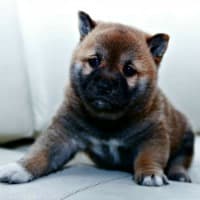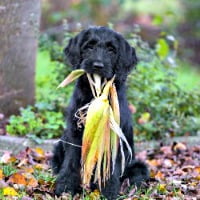Your Adolescent Puppy (27 - 52 weeks)
By the seventh month, your puppy is most definitely an adolescent... and he's a force to be reckoned with!
From now until he's a year old (or, if he's a large/giant breed, until he's 2 years or more) his growth slows down pretty significantly.
Big breeds have more growing and maturing to do than the smaller ones, but even they take their foot off the gas a bit.
So, what does change during the second six months of your pup's life? Actually quite a lot!
If you're the parent of a human teenager (s) you'll have a fairly good idea of what's to come.
If you haven't had that pleasure yet, here's a quick list of what to expect:
- challenging authority
- testing limits
- sexually motivated behavior
- pushy/bossy behavior
- the pursuit independence
- attempts to ignore house rules (or you)
You get the picture! But it's not all hard work and worry.
Your little pup is now a big pup, but he's still your best friend and he still needs you to take care of and guide him.
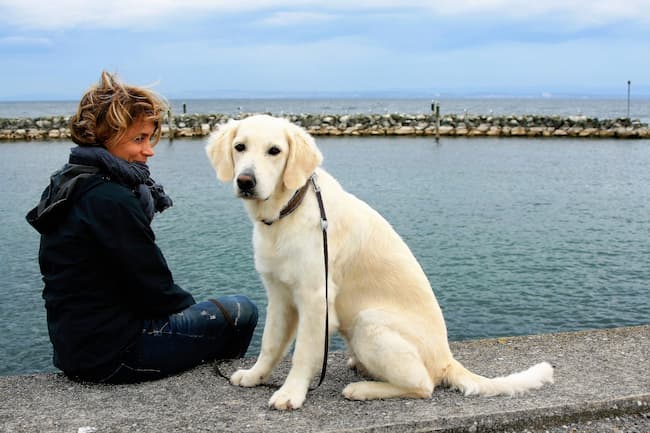
If you've been diligent about training and socialization up until now you've already set the foundation for good adult behavior.
Like most teens, your pup will 'forget' a lot of what he's learned up to now, at least for a few months, but once he's safely past the worst of adolescence that sweet, well-behaved boy you used to know will return safe and sound.
So, let's take a closer look at the interesting, challenging and fun (yes, fun) months that make up your puppy's adolescence...
Your Puppy's Development & Growth - Months 7 thru 12
There aren't really any scientific terms to describe the second six months of your little Rascal's life, 'adolescence' pretty much sums it up.
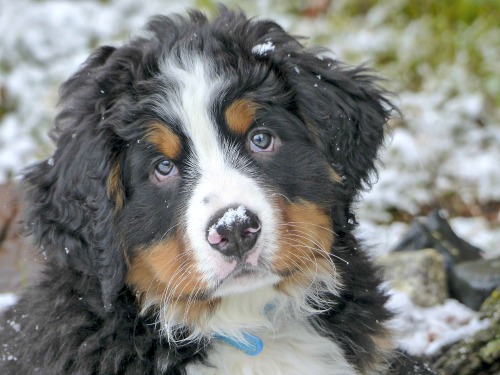
By the beginning of this developmental period small to medium breed puppies will likely have reached their full height, and simply be gaining weight as they head towards physical maturity.
They're also sexually mature.
Large and giant breed puppies probably look like teenagers, but may act more like toddlers!
They will still be gaining both height and weight, and although they're approaching sexual maturity they won't actually get there until they're 8 or 9 months old.
That's the time when you need to set up an appointment to spay or neuter your big pup, if it hasn't been taken care of already.
Most large breeds won't be physically mature by the end of the first twelve months, for some it can take two years or even longer. For these guys the teenage years tend to last a l-o-n-g time.
Although they're not quite so excited about, or committed to, their lessons during this stage, adolescent pups are still very impressionable and can learn quickly.
Their attention span is longer and they can understand more complex commands, the only problem is that often they don't want to do as they're told, and they can be stubborn and ornery at times.
By the beginning of this stage most pups are very reliable about their house training and won't pee or poop indoors, or in their crate, when left alone (for reasonable lengths of time).
But not all puppies have got it sussed out yet. Some may still have 'accidents' (especially if you originally paper-trained them and now expect them to do their business outside).
Small breeds tend to have more issues with this than the larger ones.
Just be patient and calm. Before the end of this period your pup's elimination habits will be all sorted out, as long as you've followed the guidelines I've described and been consistent in your teaching.
Your Puppy's Health - Months 7 thru 12
Healthwise, your adolescent puppy should be pretty robust by now.
Vaccinations are all taken care of, so is deworming. The only things you need to take care of on a monthly basis now are flea/tick and heartworm prevention.
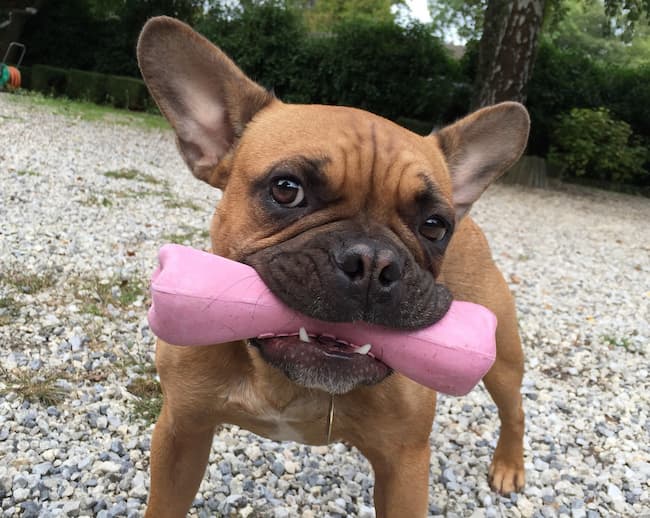
Healthwise, your adolescent puppy should be pretty robust by now.
Vaccinations are all taken care of, so is deworming. The only things you need to take care of on a monthly basis now are flea/tick and heartworm prevention.
Large and giant breeds might show some signs of 'growing pains'.
The first symptoms of this often show up around, or just after, the six month mark.
Intermittent lameness or stiffness, especially in the front limbs, are the first signs.
The correct name for this condition is 'Panosteitis'.
Luckily it's usually something that pups grow out of without any treatment.
But if your pup seems to be suffering from a lot of pain, or has swollen joints or seems unwell otherwise, then you should have your veterinarian check him out to make sure everything is as it should be.
Small to medium breed puppies usually have all their adult teeth by the end of their sixth month, for larger breeds it can take a couple of months longer.
But by 8 months or so most pups have all their 'big' teeth in place.
This is when you'll be really grateful that you dealt with all that annoying nipping/biting and chewing properly when he was younger.
If you didn't... well it's going to be painful now (not to mention seriously destructive) so redouble your efforts to put an end to it.
Your Puppy's Needs - Months 7 thru 12
During the second half of his first year, your adolescent puppy's needs remain fairly similar from month to month.
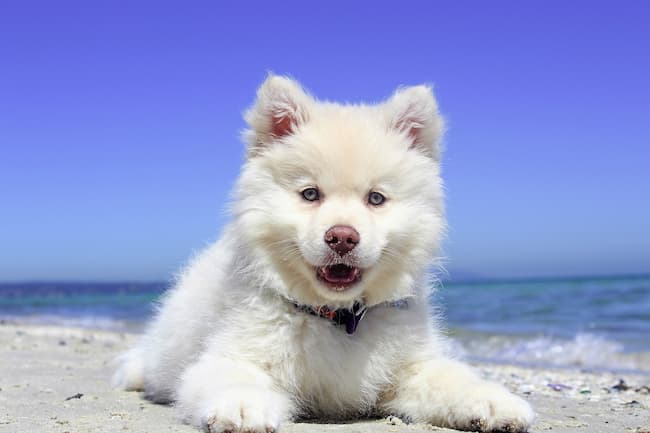
He'll be full of energy, and a lot of teenage 'angst' that can be burned off with good, old-fashioned exercise.
But make sure that his activities aren't too strenuous.
His bones, joints and ligaments are still growing and his muscle development isn't completed.
If he jumps too high or runs too far (especially on hard or slippery surfaces or on uneven ground) he could do some serious damage to himself.
You also need to keep up with regular training and socialization - even if he's stubborn or uninterested at times.
The things your Rascal learned when he was a younger are well-rooted in that adorable little brain of his, but if you don't keep practicing he will forget them given time. That would be such a waste!
There are a lot of changes going on inside your adolescent pup, and psychologically he will be swinging from confident teen, to nervous child, and back again.
He needs to be constantly exposed to new people, places and dogs so that no anxieties get a chance to take hold.
Training sessions can be a bit longer than before, and take place surrounded by more distractions, so that he learns to obey wherever he is.
Owner Responsibilities - Months 7 thru 12
During these months, your responsibilities as a puppy-parent focus on continuing the good work you started when you brought your little Rascal home.
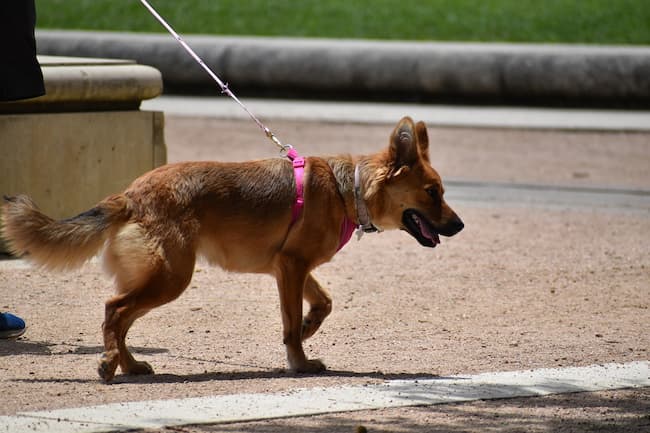
Sometimes it can be tempting to look at your adolescent puppy and think that your work is done.
But even if he looks like a grown-up boy, he's really not. There's a lot of learning your pup still needs to do.
If he's still not totally reliable about eliminating in his 'potty spot', don't despair... he's really not that unusual.
On average a pup is about 6 months old before this happens. Some are quicker, others take a bit more time.
But as long as YOU are doing it right, he'll get there sooner or later.
One thing you're going to need a lot of during these six months is patience.
Although his behavior may be challenging and difficult (even downright rude or bratty) at times, your little Rascal is still a loving, sensitive boy and he's full of feelings and instincts that he doesn't fully understand.
He needs you to provide an anchor for him, a safe haven at home and rules and routines that are predictable. That's how he feels secure and able to concentrate on maturing properly.
It's a lot easier for him to explore the world around him and grow and develop into the dog he's meant to be when his home and family is predictable, stable and loving.
Now he can join in lots of activities and accompany you just about anywhere. He'll enjoy the outings so much - and you'll enjoy showing him off and watching him have fun.
By the end of this stage of development, your pup is going to be a full-grown dog (at least the smaller breeds will be, the big boys will take a little longer) and you're both going to reap the rewards of the love, patience, training, socialization and bonding that has been going on all year.
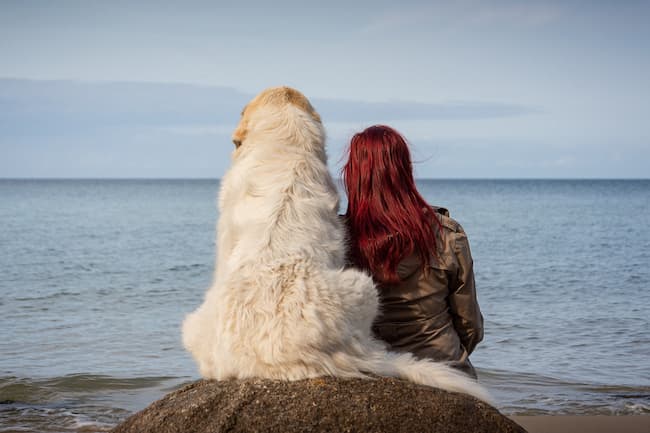
Rascal is going to be your best friend, one who loves you unconditionally and is there for you no matter what's happening in your life.
What a wonderful reward for a year well spent. Enjoy the relationship you've built with your dog, you deserve it :)
You Might Also Like:
- Home
- Your Adolescent Puppy (7 - 12 months)
